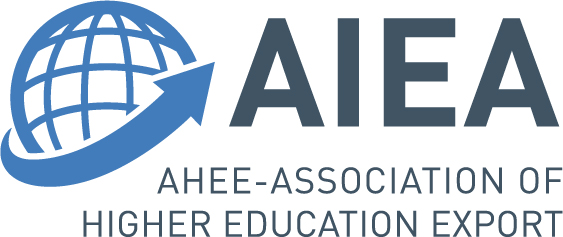NORDPLUS HORIZONTAL project
“STUDY QUALITY IN TERMS OF MULTICULTURALISM IN THE BALTIC COUNTRIES” (NPHZ-2017/10151)
Project period: 09/2017 – 09/2018

PROJECT PARTNERS and links to their websites:
Coordinating institution
· Estonian Entrepreneurship University of Applied Sciences, Estonia, www.eek.ee
Partnering institutions:
·
Tallinn
Health Care College, Estonia, www.tkk.ee
·
Lääne-Viru
College, Estonia, www.vrkk.ee
·
Tartu Health
Care College, Estonia, www.nooruse.ee
·
Utena
University of Applied Sciences, Lithuania, www.utenos-kolegija.lt
·
Karalius
Mindaugas Vocational Training Centre, Lithuania, www.kaupa.lt
·
Turiba
University, Latvia, www.turiba.lv
·
P. Stradins
Health and Social Care College, Latvia www.psk.lv
·
Higher
education Export association, Latvia, www.studylatvia.lv
·
Integration
and Migration Foundation Our People, Estonia
PROJECT BACKGROUND
The project involves 10 partners from Estonia, Latvia and Lithuania: 6
universities of applied sciences, 1 university, 1 consortium of universities, 1
training centre with primary, secondary, adult, and early childhood education
programs and 1 integration/ migration foundation.
The Baltic network work together to examine how internationalization and immigration influence the study quality in educational institutions, and to suggest suitable activities to ensure study quality under the circumstances of internationalization.
The internationalization of education and immigration on the other hand has risen a question: if and how have these two factors influenced the notion of study quality. National Association for Multicultural Education (NAME) recommends, that the goals of high-quality multicultural education include creating a safe, accepting and successful learning environment for all, increasing awareness of global issues, strengthening cultural consciousness and intercultural awareness, preventing prejudice and discrimination. Due to the economic and social circumstances all the educational institutions in our region are influenced by the multiculturalism and should assure and improve the study quality from this point of view.
During the project period (September 2017 - December 2018) partners from different educational levels share their experiences through seminars by bringing synergy to the project and its approach for better study quality. The outcome of the project is introduced in the conference: a model that helps to describe and improve study quality in multicultural classroom. Indirectly the project supports concept of life-long learning and fosters cooperation between educational institutions in the Baltic region.
PURPOSE
Due to the internationalization and immigration the profile of a students has been changed. The groups at educational institutions are no longer homogeneous: students have different cultural backgrounds, their mother tongue differs etc. Their expectation to the study process differ.
One important aspect of the whole study process is the quality of the study. Within the notion of the study quality there has been agreed in some criteria to follow. However, these criteria differ in assessment methods and therefore it is complicated to compare them. Moreover, it has not been clearly defined what is the study quality. There has been definitions referring to the components of what study quality consists of and other definitions that stresses the influence of study quality but we have not found any definition explaining the notion of study quality. On the other hand the necessity to compare the criteria of study quality in order to facilitate the free flow of students’ mobility has been risen.
Rapidly changing world in the field of globalization and immigration
challenge educational institutions
to recruit more foreign students and to adopt new generation immigrants
to educational system. So the
old approach to study quality might restrain new challenges. Moreover,
the educated people are active
looking for jobs. Although there’s unemployment, companies are looking for skilful workforce. Relying on the above mentioned the main purpose of the project is to define study quality and to present model that helps to describe and improve study quality.
PROJECT AIMS:
The concrete objectives are:
- Collect best practices concerning the study quality in multicultural
classroom;
- Create a model for study quality in multicultural classroom;
- Produce brochure/handbook and carry on a conference to disseminate all
the collected data and produced materials;
- The created network share knowledge and work together to improve study quality in terms of multiculturalism in the Baltic region.
This project is innovative since study quality in terms of multiculturalism is not defined or modelled in this region before and there will be created practical tool for Baltic region educational institutions to improve study quality.
The benefits from the project would be beneficial to the partners, students, staff and other stakeholders would gain from the project outcomes. Not only the project would have cross-border cooperation, but the created handbook-brochure would give the opportunity to share the information and best practices not only within the project partners but also outside the partner consortium.
The cooperation is expected to continue. The long term influence can be seen as the involvement in education has risen, people are satisfied with the education and the multicultural environment. They are willing to stay active learners (life-long learners).
OUTCOMES AND
RESULTS:
·
The main
activity of the project is clarification/analysis of a topic.
·
2 network
seminars are held in Lithuania (October 2017) and Latvia (March 2018);
· Every month via Skype meetings and information is shared via Moodle between the partners.
On a participant level each partner have its specific results, which together
form the results of the project:
1.
2 network meetings and 12 monthly management meetings are successfully held;
2. 10 best practices about multicultural classroom study quality are collected and rewritten as case studies;
3.
Theoretical background and the model will be ready in October 2018 in handbook-brochure;
4.
1 day conference “Study quality in multicultural school/university” for the 130
participants on October-
November in 2018Tallinn, Estonia;
5.
The handbook is published as conference material;
6. 55 dissemination events are held;
